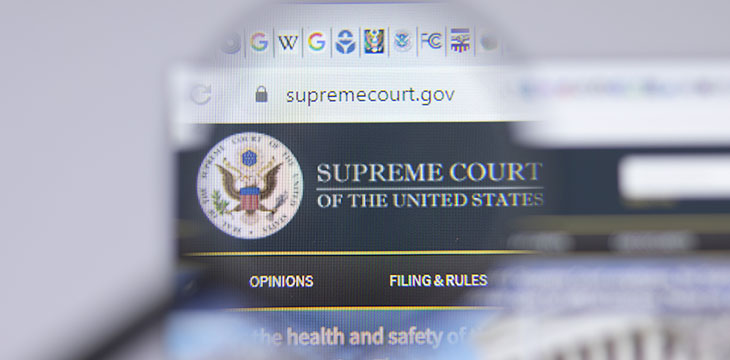|
Getting your Trinity Audio player ready...
|
Tether, the stablecoin which recently claimed to be setting a new standard for transparency, has filed an urgent petition with the Supreme Court of New York to block the release of certain documents arising from the New York Attorney General (NYAG)’s investigation into Tether and its parent company Bitfinex.
Apparently, the Office of the Attorney General received a Freedom of Information Law (FOIL) request at the end of June, demanding material associated with the settlement agreement reached between the NYAG and Tether/Bitfinex.
The company had evidently objected to the request on the grounds that disclosing the banking and lending practices of Bitfinex and Tether would put them at a competitive disadvantage, would provide a blueprint for potential bad actors to harm their reputation and thus its competitive advantage, and that the disclosure of customer names and account information would amount to an unwarranted invasion of privacy. It wanted certain requested documents redacted and others withheld entirely.
While the records officer in charge of overseeing these requests initially agreed with Tether and Bitfinex’s objections, they were rejected on appeal. It is that appeal which the company is looking to have overruled by the Supreme Court in accordance with the Freedom of Information Law’s provisions allowing judicial review of FOIL decisions.
Given Tether’s constant assurances of transparency and false assurances that the NYAG found ‘no wrongdoing,’ this mad dash to keep the output of the investigation under wraps is comical. But the filing also contains other interesting gems. For example, it has Tether admitting that it considers the disclosures it is required to make to the NYAG on a quarterly basis for two years under the settlement agreement as only being made to the NYAG. This is important: remember the much-criticized Consolidated Reserves Report that Tether released, ostensibly to fulfil the requirements of the settlement agreement? Tether has now confirmed that whatever it’s been showing the NYAG is a totally different document. This was predictable, because it was hard to imagine the NYAG accepting such a sparse and devoid-of-detail document as a satisfactory disclosure under the settlement agreement. It is, however, a reminder that Tether has no interest in showing the public any of its cards and certainly none relating to the true status of its reserve.
Also, rather humorously, the company represented to the Court that USDTs are redeemable “subject to Tether’s Terms of Service and fee schedule.” In other words, they aren’t redeemable at all: the terms of service, among other exculpatory clauses, say that Tether can delay the redemption or withdrawal of Tether tokens “if such delay is necessitated by the illiquidity or unavailability or loss of any Reserves held by Tether to back the Tether tokens.” Considering Bitfinex had to recently move US$500 million from Tether’s bank account to cover up the loss of almost a billion dollars’ worth of client funds, it is apparent that no Tether is ever being redeemed.
Meanwhile, Tether released a public statement concerning the filing, in which it said that “Tether continues to lead the industry in providing information about its reserves to give clarity and transparency into our operations. Tether is also in the process of obtaining audited financial statements and hopes to produce these within the coming months.”
Considering Tether has already lied about the outcome of the NYAG investigation and has managed to get by for over seven years without producing a single audit, don’t hold your breath for anything to change with Tether without coercion from law enforcement.
Follow CoinGeek’s Crypto Crime Cartel series, which delves into the stream of groups—a from BitMEX to Binance, Bitcoin.com, Blockstream, ShapeShift, Coinbase, Ripple and Ethereum—who have co-opted the digital asset revolution and turned the industry into a minefield for naïve (and even experienced) players in the market.

 02-28-2026
02-28-2026 




